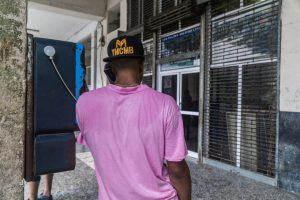“Navigating the complex landscape of Telemarketing and Consumer Protection Act (TCPA) regulations in South Carolina can be a daunting task for businesses facing unwanted call allegations. This article explores the common legal defenses employed by companies accused of TCPA violations in Charleston. From understanding the impact of these regulations to the importance of proper documentation, we delve into effective strategies, including the role of skilled unwanted call lawyers SC. Discover how the right unwanted call attorney SC and unwanted call law firm South Carolina can guide businesses through this challenging process.”
Understanding TCPA Regulations and Their Impact in South Carolina
In Charleston and across South Carolina, businesses face stringent regulations regarding unwanted calls under the Telephone Consumer Protection Act (TCPA). This federal law, designed to protect consumers from intrusive telemarketing practices, has significantly impacted how companies conduct business by phone. The TCPA prohibits automated or prerecorded calls to wireless phones without prior express consent, as well as certain other forms of nuisance calling. Non-compliance can result in substantial financial penalties for businesses, making it crucial for companies to understand and adhere to these regulations.
If you’re a resident of South Carolina and have received unwanted calls, knowing your rights under the TCPA is essential. An experienced unwanted call lawyer SC, or unwanted call attorney SC, can guide you through the legal process and help navigate any potential defenses if your business is facing allegations of TCPA violations. Reputable unwanted call law firms South Carolina specialize in these cases, offering expertise in defending against claims related to automated calls, text messages, and other forms of communication governed by the TCPA.
Common Legal Strategies for Defending Against Unwanted Call Allegations
When companies in Charleston face allegations of violating Telephone Consumer Protection Act (TCPA) regulations through unwanted calls, they often employ several common legal strategies to defend against such accusations. One primary approach is challenging the validity of the plaintiff’s standing, arguing that they lack the right to sue over perceived violations. This can involve scrutinizing whether the plaintiff has suffered any tangible harm or if they are merely acting as a private attorney general, which may not be permitted under current legal precedents.
Another frequent defense tactic is disputing the nature of the calls in question. Unwanted call lawyers in South Carolina may assert that the communications were not abusive, automated, or prerecorded, as required by TCPA regulations. They might also contend that the calls were made for a valid business purpose and with prior express consent from the recipients, thereby falling outside the scope of prohibited practices. These defenses are often backed by detailed records and evidence to demonstrate compliance with TCPA guidelines.
The Role of Effective Documentation and Record-Keeping
In navigating the complex landscape of Telephone Consumer Protection Act (TCPA) regulations, effective documentation and record-keeping play a crucial role for companies facing accusations of violations. A well-organized and meticulous record system can serve as a powerful defense mechanism for unwanted call lawyer SC and unwanted call attorney SC cases in Charleston. This includes maintaining detailed logs of all telephone communications, ensuring compliance with the TCPA’s strict do-not-call lists and consent requirements.
For instance, companies should be able to demonstrate that they have obtained valid consent for marketing calls, documented opt-out requests, and preserved records related to consumer interactions. Such documentation can help unwanted call law firms South Carolina and unwanted call lawyers South Carolina assess whether a company has acted in accordance with the law. Proper record-keeping also facilitates effective communication between businesses and their legal representatives, enabling them to build a robust defense strategy against unwanted call charges SC.






